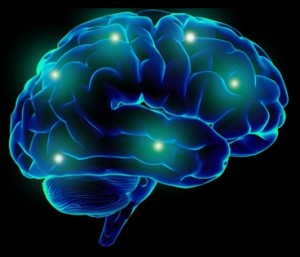- Home
- Editorial
- News
- Practice Guidelines
- Anesthesiology Guidelines
- Cancer Guidelines
- Cardiac Sciences Guidelines
- Critical Care Guidelines
- Dentistry Guidelines
- Dermatology Guidelines
- Diabetes and Endo Guidelines
- Diagnostics Guidelines
- ENT Guidelines
- Featured Practice Guidelines
- Gastroenterology Guidelines
- Geriatrics Guidelines
- Medicine Guidelines
- Nephrology Guidelines
- Neurosciences Guidelines
- Obs and Gynae Guidelines
- Ophthalmology Guidelines
- Orthopaedics Guidelines
- Paediatrics Guidelines
- Psychiatry Guidelines
- Pulmonology Guidelines
- Radiology Guidelines
- Surgery Guidelines
- Urology Guidelines
Neurology Today Announces 2016 Best Advances in Neurology

Neurology Today®, the official news source of the American Academy of Neurology, has released its annual list of the Best Advances of 2016 in areas such as dementia, multiple sclerosis, neuroethics, epilepsy, neurogenetics and stroke. The list of important developments in neurology was selected by the publication's editorial advisory board, comprising leading experts in various neurologic specialties, and was published online ahead of print on January 3, 2017.
This year, for the first time, the list includes top abstracts presented at major neurology specialty meetings in 2016, including the Annual Meeting of the American Academy of Neurology, the International Stroke Conference and the American Epilepsy Society, among others. The abstracts were chosen by the science chairs of those meetings.
"We recognize that our readers are bombarded with new information every day," said Neurology Today Editor-in-Chief Steven P. Ringel, MD, and Fellow of the American Academy of Neurology. "With the guidance of our advisory board-all leaders in their specialties-we aim to separate the hope from the hype."
These, among other findings of important studies, are featured in the Neurology Today Best Advances of 2016 article:
• An analysis of data from the longitudinal Framingham Heart Study revealed a decrease in dementia over three decades, a finding contrary to results of other recent studies
• Cannabidiol, a cannabis extract, was found to reduce seizures in two severe forms of epilepsy, Lennox-Gastaut syndrome and Dravet syndrome
• Children and teens with migraine experienced no difference in relief whether they were given placebo or commonly prescribed amitriptyline or topiramate
• A large analysis suggested that vascular dysregulation, decreased and disrupted blood flow through the veins, arteries and capillaries, may lead to late-onset Alzheimer's disease
This year, for the first time, the list includes top abstracts presented at major neurology specialty meetings in 2016, including the Annual Meeting of the American Academy of Neurology, the International Stroke Conference and the American Epilepsy Society, among others. The abstracts were chosen by the science chairs of those meetings.
"We recognize that our readers are bombarded with new information every day," said Neurology Today Editor-in-Chief Steven P. Ringel, MD, and Fellow of the American Academy of Neurology. "With the guidance of our advisory board-all leaders in their specialties-we aim to separate the hope from the hype."
These, among other findings of important studies, are featured in the Neurology Today Best Advances of 2016 article:
• An analysis of data from the longitudinal Framingham Heart Study revealed a decrease in dementia over three decades, a finding contrary to results of other recent studies
• Cannabidiol, a cannabis extract, was found to reduce seizures in two severe forms of epilepsy, Lennox-Gastaut syndrome and Dravet syndrome
• Children and teens with migraine experienced no difference in relief whether they were given placebo or commonly prescribed amitriptyline or topiramate
• A large analysis suggested that vascular dysregulation, decreased and disrupted blood flow through the veins, arteries and capillaries, may lead to late-onset Alzheimer's disease
Next Story
NO DATA FOUND

Disclaimer: This site is primarily intended for healthcare professionals. Any content/information on this website does not replace the advice of medical and/or health professionals and should not be construed as medical/diagnostic advice/endorsement or prescription. Use of this site is subject to our terms of use, privacy policy, advertisement policy. © 2020 Minerva Medical Treatment Pvt Ltd